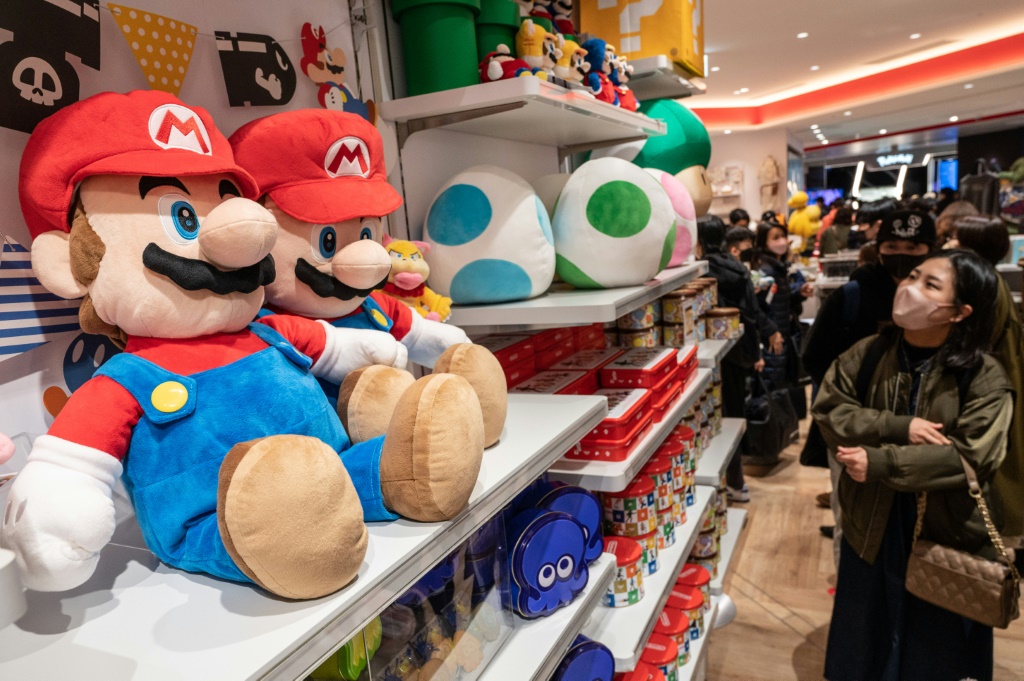Tokyo, Japan (AFP) — Nintendo cut its full-year net profit forecast on Tuesday, saying the global chip shortage and other supply chain problems had hit console sales in the nine months to December.


The Japanese gaming giant also trimmed the annual hardware sales forecast for its Switch console to 18 million units from the previous target of 19 million.
New games such as “Pokemon Scarlet and Violet” and “Splatoon 3” have performed well, the Kyoto-based company said.
But hardware sales by unit declined 21 percent on-year in April-December, “mainly due to a shortage of semiconductors and other component supplies that impacted production until around late summer”.
That in turn affected total software sales, which declined four percent on-year, Nintendo said.
The company now predicts net profit in 2022-23 of 370 billion yen ($2.8 billion), down from its previous forecast of 400 billion yen.
In 2020-21, Nintendo’s annual net profit soared to a record of 480 billion yen, thanks to booming demand for indoor entertainment during Covid-19 lockdowns.
The firm nearly matched that figure in the last financial year, with its Switch console continuing to perform well and software sales staying strong.
But sales of the Switch, which was launched in 2017, as well as its Lite and OLED variations, are slowing as the console ages.
Hideki Yasuda of Toyo Securities told AFP ahead of the earnings release that “it would be a big surprise if Nintendo were to increase the production of Switch” at this stage of its life cycle.
Despite rumours swirling over Nintendo’s next big hardware product, he cautioned that “it’s still too early to talk about the next game console”.
There are still bright spots on the horizon, however, with the chip shortage now easing and big titles coming up for Nintendo, including the new “Legend of Zelda” game.
Amir Anvarzadeh of Asymmetric Advisors said that to stay desirable, the Switch “needs a fairly urgent graphics processing unit upgrade” because the OLED screen version, released in 2019 with upgraded graphics and memory, “didn’t seem significant enough”.
The Switch serves as both a handheld and TV-compatible device, a selling point that has borne fruit so far.
But “with chips getting faster but battery technology not keeping up, Nintendo might have to reconsider its ‘one console’ strategy,” Anvarzadeh said.
